Navigation
Install the app
How to install the app on iOS
Follow along with the video below to see how to install our site as a web app on your home screen.

Note: This feature currently requires accessing the site using the built-in Safari browser.
More options
You are using an out of date browser. It may not display this or other websites correctly.
You should upgrade or use an alternative browser.
You should upgrade or use an alternative browser.
Camera opinions
- Thread starter rendyz
- Start date
airgunr
TPF Noob!
- Joined
- Mar 21, 2004
- Messages
- 846
- Reaction score
- 4
- Location
- Delavan, Wisconsin, USA
- Can others edit my Photos
- Photos OK to edit
Well to start with the D70s had been superseeded by the D80. If you can afford it, of the two I would select the D80. If money is an issue the D70s is still a fine camera.
What type of photography do you want to do? The answer to that question will help you select the type of lens you want to get. To me the lens is as important as the camera.
What type of photography do you want to do? The answer to that question will help you select the type of lens you want to get. To me the lens is as important as the camera.
- Joined
- Dec 11, 2006
- Messages
- 18,743
- Reaction score
- 8,047
- Location
- Mid-Atlantic US
- Website
- www.lewlortonphoto.com
- Can others edit my Photos
- Photos NOT OK to edit
I think that any Digital Single Lens Reflex camera (DSLR) is a two-edged sword for a beginner. The cameras have terrific flexibility and features but there is a steep learning curve to use them. Additionally, the images from SLR cameras like the D70 or D80 almost demand the use of post-processing software to optimize your images.rendyz said:Can you give me some opinions about nikon d70s and d80s??
What is the most suitable camera for beginner?!
Thx..
When combined with learning the concepts and technique of photography, this may be too daunting a task.
If you have the option, I might suggest you use a smaller P&S camera to take pictures for a while, learn the issues of photography, learn to compose and expose. Understand digital photography. Learn if you like the entire deal - and then take the step into SLR.
BTW. I love the D70 - it was my first serious camera and I still use the body as a backup for a D200. However the sensor of the D80 is a step above the D70 and the D80 is a less-robust, smaller feature set D200.
i have the d70s and i love it. the traveler is right, it's difficult to learn post processing, photography and this camera all at once. at least it is for me!
the traveler, i remember reading recently that you can change the custom settings (saturation, etc) so that your sooc pictures on the d70 will come out with virtually no need for pp. is this true?
the traveler, i remember reading recently that you can change the custom settings (saturation, etc) so that your sooc pictures on the d70 will come out with virtually no need for pp. is this true?
fmw
No longer a newbie, moving up!
+1. I've been a photographer for 1/2 a century and it took me quite a while to learn my way around the DSLR's. I think it was 2 or 3 years before I really started exploring all the menu options. It was tough for me and I already had a pretty broad knowledge of photographic technique and a lot of photographic experience.
I agree that it could be hard for a beginner. Honestly, I don't think it matters which model you choose. I think they are all similarly complex.
I agree that it could be hard for a beginner. Honestly, I don't think it matters which model you choose. I think they are all similarly complex.
ironsidephoto
TPF Noob!
- Joined
- Oct 22, 2006
- Messages
- 337
- Reaction score
- 0
- Location
- Arkansas
- Website
- www.ironsidephotography.com
- Can others edit my Photos
- Photos NOT OK to edit
i started on a good canon p&s and got some great shots out of it. i think you should start out one something smaller--if, after that, you've found that you really love taking pictures and want to go to the next level, then you should move up to DSLRs.
but i'd go with the D80.
but i'd go with the D80.
- Joined
- Dec 11, 2006
- Messages
- 18,743
- Reaction score
- 8,047
- Location
- Mid-Atlantic US
- Website
- www.lewlortonphoto.com
- Can others edit my Photos
- Photos NOT OK to edit
the traveler, i remember reading recently that you can change the custom settings (saturation, etc) so that your sooc pictures on the d70 will come out with virtually no need for pp. is this true?
Well, I guess sort of. I'm trying to remember where I saw the step-by-step setup for producing better saturated jpgs etc.
However, I tend not to preset the camera to do stuff for me. If the picture is important at all, I usually shoot Raw and, except for white balance and exposure, then proceed to PS for any post-processing. (I particularly don't do any sharpening in the raw plug-in.)
This sounds more pompous that its meant - I just would rather not surrender any control I have, no matter how tenuous, over the picture.
If it gets messed up, I would rather do it myself.
ball
TPF Noob!
I bought my wife a Nikon D50 for Christmas. It was a model that she had mentioned a few times earlier in the year. DSLRs scare the hell out of me. I'll stick to film.
britonk
TPF Noob!
- Joined
- Nov 21, 2006
- Messages
- 136
- Reaction score
- 0
- Location
- Stoke on Trent, Staffordshire, UK
- Website
- www.btonkinson.com
- Can others edit my Photos
- Photos OK to edit
Additionally, the images from SLR cameras like the D70 or D80 almost demand the use of post-processing software to optimize your images.
Traveler - what makes you say this?
- Joined
- Dec 11, 2006
- Messages
- 18,743
- Reaction score
- 8,047
- Location
- Mid-Atlantic US
- Website
- www.lewlortonphoto.com
- Can others edit my Photos
- Photos NOT OK to edit
I can't easily find the reference but it was bruited about on the Nikonians site about the D70's tendency to underexpose to ensure detail in the highlights.
On a personal basis, I invariably adjust the crop (I don't care for the 4 x 6 aspect ratio in portraits) and do some adjustments to make the image the best it can be, at the very least sharpening of some type. I often shoot RAW and between RAW conersion and my natural failings as a photographer means I adjust most images that are, to me, 'keepers.'
On a personal basis, I invariably adjust the crop (I don't care for the 4 x 6 aspect ratio in portraits) and do some adjustments to make the image the best it can be, at the very least sharpening of some type. I often shoot RAW and between RAW conersion and my natural failings as a photographer means I adjust most images that are, to me, 'keepers.'
britonk
TPF Noob!
- Joined
- Nov 21, 2006
- Messages
- 136
- Reaction score
- 0
- Location
- Stoke on Trent, Staffordshire, UK
- Website
- www.btonkinson.com
- Can others edit my Photos
- Photos OK to edit
Oh.. do you know if the D50 shares this tendency? I have noticed some of my shots are underexposed but I assumed that was part my fault and part down to poor lighting.
Thanks for the info and I know what you mean about cropping - I tend to crop a lot of my images to alter aspect ratio.
Thanks for the info and I know what you mean about cropping - I tend to crop a lot of my images to alter aspect ratio.
- Joined
- Dec 11, 2006
- Messages
- 18,743
- Reaction score
- 8,047
- Location
- Mid-Atlantic US
- Website
- www.lewlortonphoto.com
- Can others edit my Photos
- Photos NOT OK to edit
I'm sorry but I don't know anything about the D50. My eventual conclusion was that all exposure situations are so situational that I can't expect the camera to understand the environment better than I and so I lean heavily on the use of the LCD/histogram for exposures.
My behaviors have been strongly influenced by the exposure to the right school http://www.luminous-landscape.com/tutorials/expose-right.shtml and this this results in images that are seemingly overexposed in the mid-tones and require correction in PS but gives good deep darks and excellent details when the corrections are done.
Please explore for yourself and don't rely on any advice until it works for you.
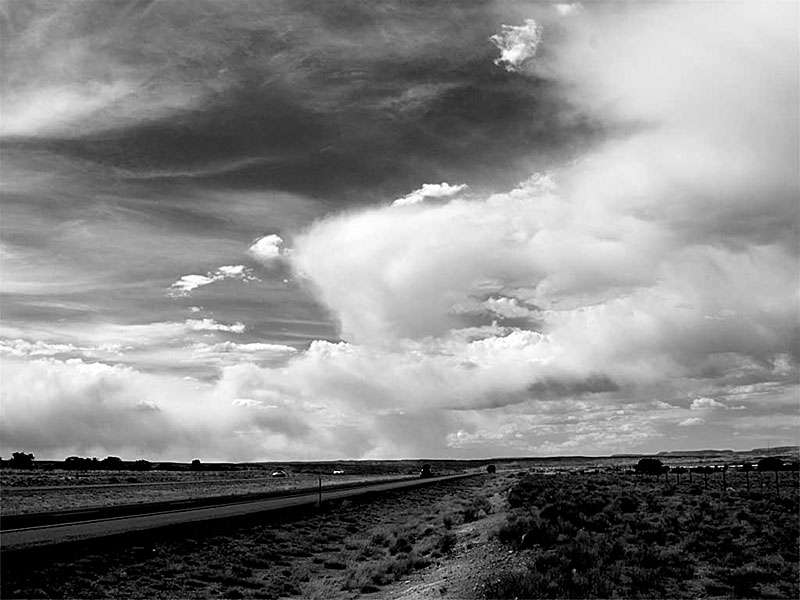
My behaviors have been strongly influenced by the exposure to the right school http://www.luminous-landscape.com/tutorials/expose-right.shtml and this this results in images that are seemingly overexposed in the mid-tones and require correction in PS but gives good deep darks and excellent details when the corrections are done.
Please explore for yourself and don't rely on any advice until it works for you.

I
Iron Flatline
Guest
Digital SLRs allow you to change a lot of settings to your liking. Beyond things like the white balance, you can control saturation, sharpness, color hue, contrast, brightness...dunno, there's more.
The way the cameras ship (at least Canons) tend to be a little lower on the sharpness scale and the saturation is a little lower. The goal (to my understanding) is to make sure that portraits (uh, pictures of people) look "nice." You'll have to set that yourself. It's in the various sub-menus.
You can always create custom profiles, whereby you have a couple of pre-sets for particular types of shooting that you do. Also, setting up your camera with this much detail is particularly handy if you're in a controlled environment like a studio shoot, where you know the lighting and other conditions will be identical for many sequential shots.
....but of course, all of this is in your manual, which I humbly suggest you read with diligence.
The way the cameras ship (at least Canons) tend to be a little lower on the sharpness scale and the saturation is a little lower. The goal (to my understanding) is to make sure that portraits (uh, pictures of people) look "nice." You'll have to set that yourself. It's in the various sub-menus.
You can always create custom profiles, whereby you have a couple of pre-sets for particular types of shooting that you do. Also, setting up your camera with this much detail is particularly handy if you're in a controlled environment like a studio shoot, where you know the lighting and other conditions will be identical for many sequential shots.
....but of course, all of this is in your manual, which I humbly suggest you read with diligence.
Most reactions
-
 428
428 -
 287
287 -
 282
282 -
 266
266 -
 222
222 -
 198
198 -
 182
182 -
 179
179 -
 164
164 -
 164
164 -
 150
150 -
 130
130 -
 120
120 -
 95
95 -
I
94
Similar threads
- Replies
- 13
- Views
- 2K
- Replies
- 9
- Views
- 329
- Replies
- 8
- Views
- 736

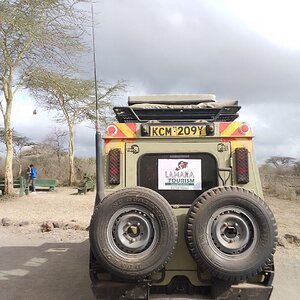
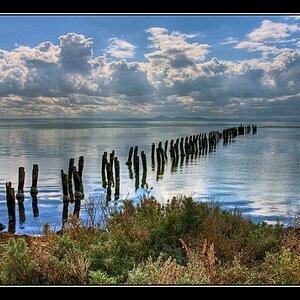
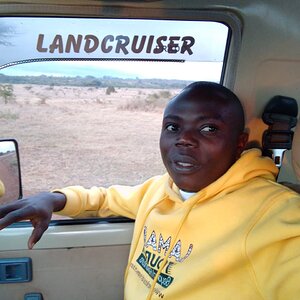
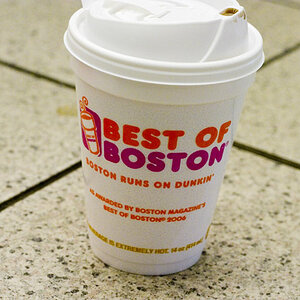
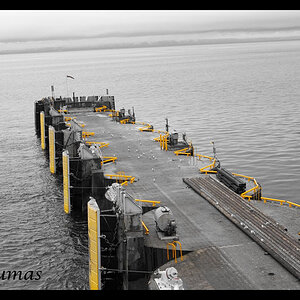
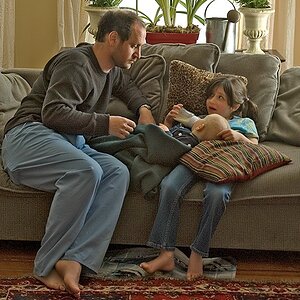
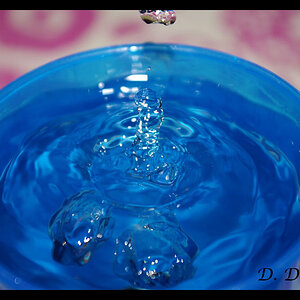
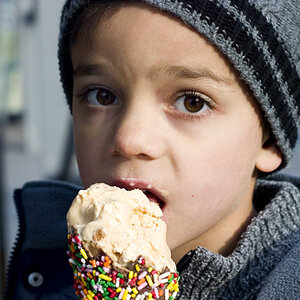
![[No title]](/data/xfmg/thumbnail/31/31016-072880d9bc086c9fe71b9b1ae48603d4.jpg?1619734571)
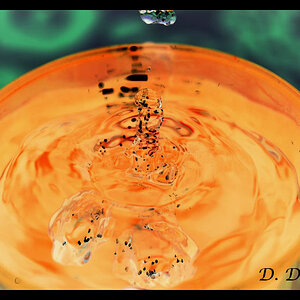
![[No title]](/data/xfmg/thumbnail/42/42059-61b97bbebb00e6276672551f4e3b3e43.jpg?1619739995)
![[No title]](/data/xfmg/thumbnail/31/31013-b871f1d295c83b831c1423028e1ce5dc.jpg?1619734568)